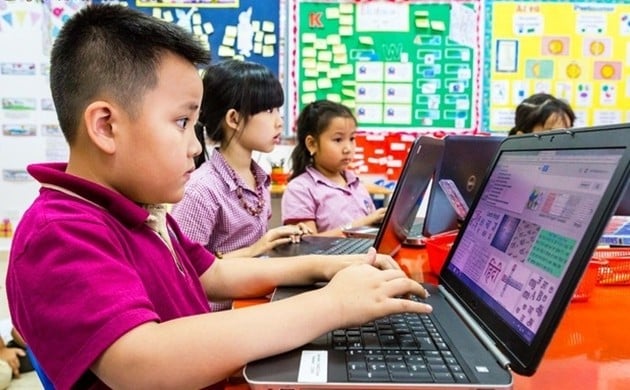 |
| Having early access to the internet and social networks, children face many potential risks from harmful content on cyberspace. (Illustration photo) |
Nowadays, information technology and the Internet are gradually becoming an essential part of the life of every digital citizen in the digital age. Early access to the Internet and social networks, children face many potential risks from harmful content on cyberspace.
Potential risks
Not long ago, the story of young children voluntarily participating in a game called "Blue Whale Challenge" and the suicide of some children is proof that the online environment has unpredictable potential dangers.
In particular, children often play online games, connect and share with each other, so a small action can quickly become a trend, a trend that children participate in while they do not yet distinguish the benefits and harms of those trends. Some people even believe and follow the instructions of websites that negatively affect themselves.
According to the report of the National Child Protection Hotline 111, in 2022, the Hotline received 419 calls about child protection on the internet and 18 reports about channels/ video clips with content harmful to children. In the first 5 months of 2023 alone, the Hotline received 128 calls about child protection on the internet and 3 reports about channels/video clips with content harmful to children. Of the 128 calls, 124 were for consultation and 4 were for connection and intervention for children who were abused on the internet. These numbers show that the issue of ensuring safety for children on the internet is more urgent than ever.
According to a report by the EU Kids Online Multinational Research Network, the risks of harm to minors and children from online activities are classified into risks of harmful content, contact with bad adults or networks, negative behavior and risks of transactions with scammers.
Regulations under current law
In Vietnam, the law on protecting the rights of minors and children has been developed in a relatively synchronous manner. Specifically, the law on protecting the rights of minors and children in cyberspace has been stipulated in legal and sub-law documents including: Law on Information Technology; Law on Network Information Security; Law on Children; Law on Access to Information; Law on Cyber Security; Decree No. 56/2017/ND-CP of the Government detailing a number of articles of the Law on Children...
In particular, on June 1, 2021, the Government issued Decision No. 830/QD-TTg approving the program "Protecting and supporting children to interact healthily in cyberspace for the period 2021-2025". On July 30, 2021, the Ministry of Information and Communications issued the Plan to implement Decision No. 830/QD-TTg.
However, the review and improvement of laws on protecting the rights of minors in cyberspace needs to continue to be vigorously carried out and requires the decisive participation of all levels, sectors and the whole society.
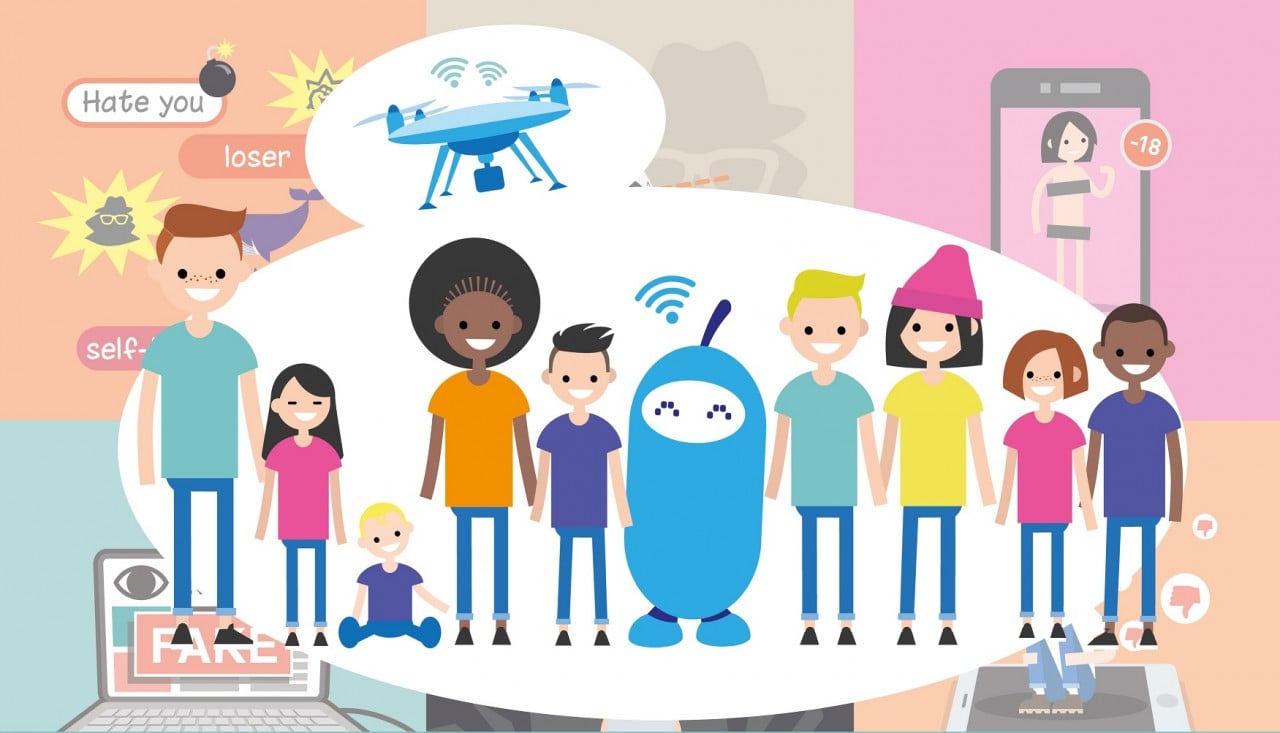 |
| The review and improvement of laws on protecting the rights of minors in cyberspace needs to be continued vigorously and requires the decisive participation of all levels, sectors and the whole society. (Source: SaferInternet4EU) |
Add protections at all levels
According to Mr. Dinh Tien Dung, Deputy Director of the Department of Foreign Information, Ministry of Information and Communications, protecting the rights of minors in cyberspace needs to focus on the following solutions:
First, build and perfect the legal corridor. Specifically, review and perfect the legal corridor and policy mechanisms on protecting and supporting minors and children to interact healthily in the online environment, in which children are the center in policy making and collecting children's opinions on mechanisms and policies; highlight and specify the responsibilities of heads of state agencies from central to local levels.
Along with that, it is necessary to propose amendments and supplements to administrative sanctions and strict criminal handling of crimes against minors and children in the online environment; clearly defining the responsibilities and obligations of parents, family members and caregivers in managing and accessing children's online environment.
In particular, it is strictly forbidden to store, share in any form and create images and video clips with the purpose of violating the law in which minors and children are the victims of abuse. In addition, there should be more mechanisms and policies to attract businesses to provide products, applications and content to support minors and children to interact healthily and creatively in the online environment.
Second, education and communication to raise awareness and equip children with skills through awareness-raising communication activities at a national scale; innovate communication methods and content in a close and lively direction to attract young people, through the application of information and communication technology, through the internet and online social networks to improve the effectiveness of communication work. Put on the television screen the hotline number of the National Child Protection Hotline No. 111.
The educational program needs to integrate content that equips minors and children with knowledge and awareness of the online environment, basic skills when using the Internet, and how to seek support when being abused online; aiming to equip children with basic "digital skills" according to their age; promoting forms of counseling and support for children through school counseling. Developing educational programs for children who do not go to school through the child protection system in the community, social organizations, residential groups, and counseling centers.
At the family and school levels, parents, caregivers, teachers and reporters have the responsibility to participate in training courses to proactively and regularly update knowledge and methods to guide children in self-protection skills, self-detection and reporting of potentially harmful behaviors when participating in the online environment.
At the social level, businesses need to develop information and communication technology products and applications that support online learning so that minors and children can access and exploit online resources proactively, creatively, effectively and safely.
Along with that, it is necessary to strengthen communication work, especially for forms of communication on the Internet about children's rights and the responsibility to protect and support children in the online environment.
Third, deploy technical measures and solutions, and apply technology to protect children in cyberspace.
Accordingly, it is necessary to establish friendly information channels to receive feedback on images, videos, and content of child abuse on the internet environment in the direction of integrating into a single focal point; have an automatic reporting mechanism on harmful content and child abuse on the internet environment to competent state agencies.
The education and training sector needs to put into use software, information and communication technology applications, learning material repositories, and electronic publications to improve the quality of teaching and learning in the online environment, while at the same time properly managing students' access to the internet, innovating the way schools interact with families and students; contributing to safely implementing digital transformation in the field of education and training.
At the management level, it is necessary to deploy technical solutions to collect, analyze, and monitor compliance with filtering and removing child-abusing content on the internet.
Along with that, Vietnamese information technology and communications enterprises need to develop and master technologies to protect and support children in the online environment and applications and content to help children interact creatively and healthily in the online environment.
Fourth, perfecting the organizational structure and improving the capacity of law enforcement. Specifically, continuing to perfect the organizational structure and training staff to meet professional and technical requirements, promptly responding to issues related to minors in the online environment; researching and establishing counseling and support centers to help minors recover psychologically, physically and mentally when they are abused in the online environment; forming a network to support minors in the online environment; implementing programs to improve capacity, update knowledge, technology, counseling skills, and provide psychological support for law enforcement forces, officers working in child protection, crime investigation, prosecution, and trial; building coordination mechanisms and procedures for receiving information, investigating, handling, punishing, and prosecuting acts of abuse against minors, etc.
Fifth, strengthen international cooperation, including strengthening cooperation between state agencies and domestic and foreign socio-economic organizations, cooperation between Governments, participating in international organizations, commitments and networks on child protection, proactively participating in initiatives to help children interact creatively and healthily in the online environment, in accordance with the Party and State's guidelines.
At the same time, research international experience, transfer technology, apply advanced technological solutions that have been proven effective in the world in the issue of protecting children in the online environment. Actively implement international cooperation activities, exchange legal frameworks, learn from experiences in improving the capacity of Vietnamese agencies in protecting minors and children in the online environment.
In addition, it is necessary to call for legal international funding sources in accordance with the law for the purpose of protecting and supporting minors and children to interact healthily and creatively in the online environment.
Source



![[Photo] Keep your warehouse safe in all situations](https://vphoto.vietnam.vn/thumb/1200x675/vietnam/resource/IMAGE/2025/10/1/3eb4eceafe68497989865e7faa4e4d0e)

![[Photo] Hanoi morning of October 1: Prolonged flooding, people wade to work](https://vphoto.vietnam.vn/thumb/1200x675/vietnam/resource/IMAGE/2025/10/1/189be28938e3493fa26b2938efa2059e)
![[Photo] President of the Cuban National Assembly visits President Ho Chi Minh's Mausoleum](https://vphoto.vietnam.vn/thumb/1200x675/vietnam/resource/IMAGE/2025/10/1/39f1142310fc4dae9e3de4fcc9ac2ed0)

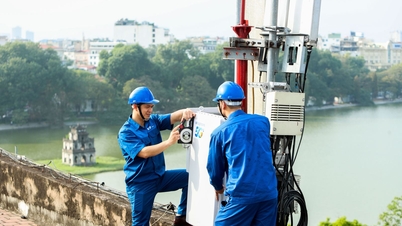

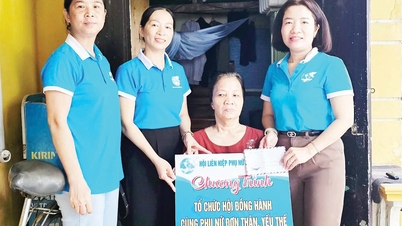




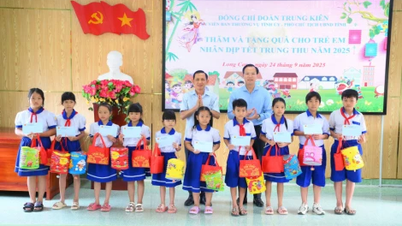







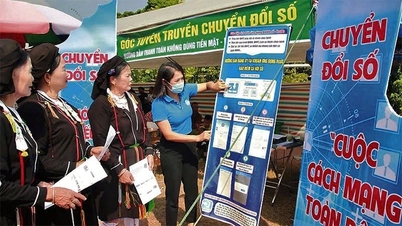

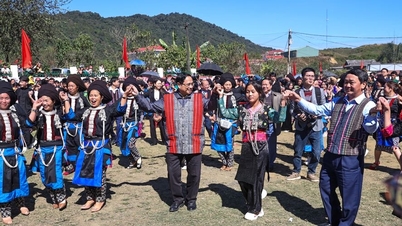



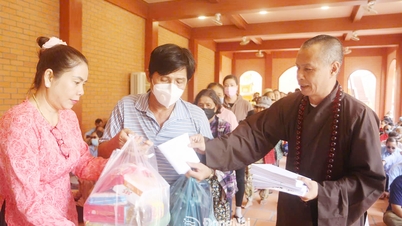






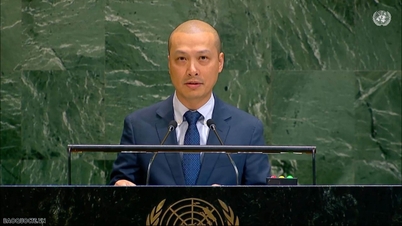
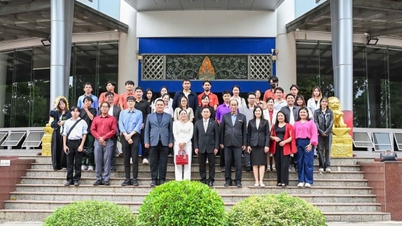

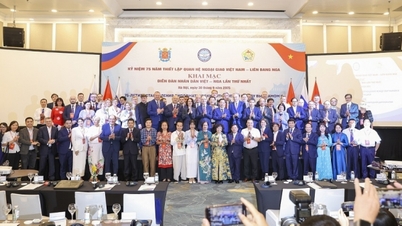






























































Comment (0)